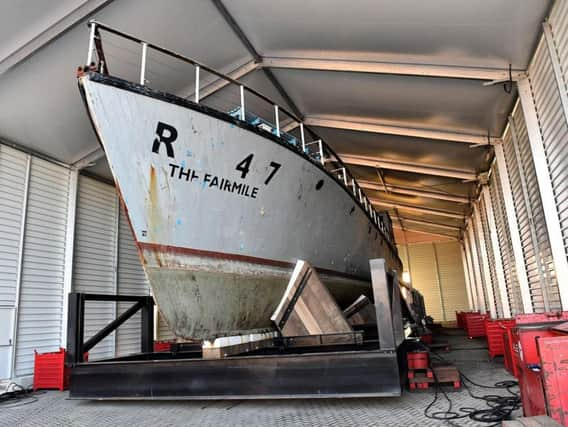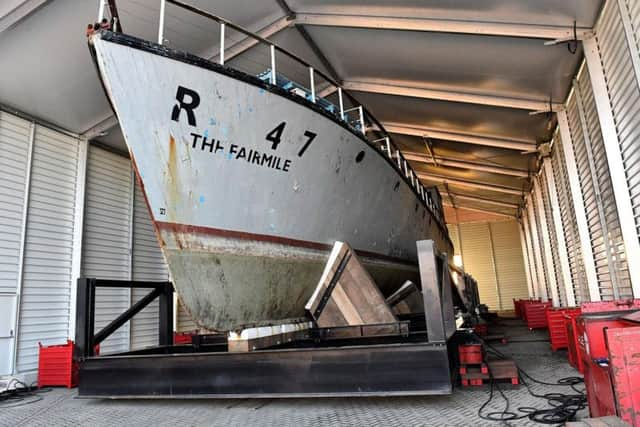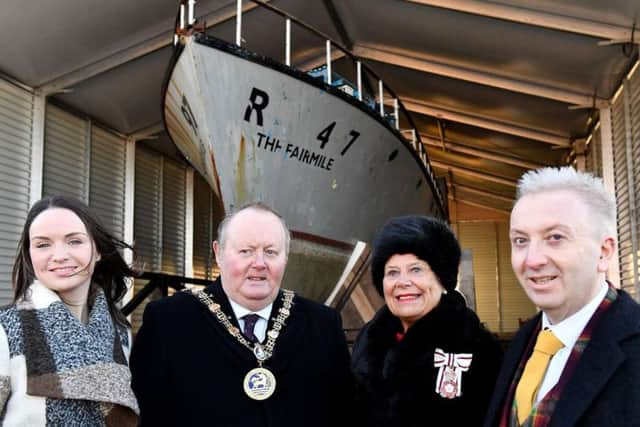Second World War ship welcomed to Hartlepool as work begins on £1.1 million visitor attraction project


The Rescue Motor Launch (RML) 497 completed its 400 mile journey to Hartlepool at the weekend, travelling from Southampton to the National Museum of the Royal Navy in Jackson Dock.
Her relocation is in anticipation of a conservation programme to get her on permanent display telling the rich naval story of the coastal forces in the North Sea.
Advertisement
Hide AdAdvertisement
Hide AdThe move has been made possible by a Tees Valley Combined Authority grant of £499,250, which combined with an investment by the National Museum, forms part of a larger regeneration project worth £1.1 million.
Arabella Roberts, historic ships manager for the National Museum of the Royal Navy, said the ship had been given a fantastic reception on its arrival in the town.
"We've had a brilliant response from everyone," she said.


"They saw her yesterday and everyone has been so welcoming, and so curious about her, and it's not something you see coming down your main street."
Hartlepool Borough Council leader Christopher Akers-Belcher said: "This is really significant and a new era for the National Museum of the Royal Navy.
Advertisement
Hide AdAdvertisement
Hide Ad"The work we have put in, as a council, means that this is a starting point, about regeneration of the town, growing the visitor economy, and to have a spectacular new attraction that is going to go through significant conservation and eventually it's going to go in a new wing of the National Museum of the Royal Navy.
"This time last week, we secured the funding for the new wing, so it couldn't be better timing, it's arrival this weekend.


"I had my reservations that it would ever come, so to actually see it here, it's quite emotional, because I know so many people have put in so much work in getting it here and I am absolutely delighted for Hartlepool."
The history of the 34-metre long RML 497 has seen it rescue fallen airmen in the Second World War to carrying people via a ferry service in the South West.
Advertisement
Hide AdAdvertisement
Hide AdShe was acquired by the Portsmouth-based National Museum of the Royal Navy in 2015 following a grant of £90,600 from the National Lottery’s Heritage Lottery Fund (HLF) and £5,000 each from the Coastal Forces Heritage Trust and the National Museum.
She was one of the first mass-produced vessels and although this type of craft was needed by the Royal Navy as the war progressed, it was not possible for them to be built in the Admiralty's very busy shipyards.
The designs were therefore spread around the small boatyards of the UK, which were well capable of undertaking the construction of these wooden hull craft, quickly and easily.
